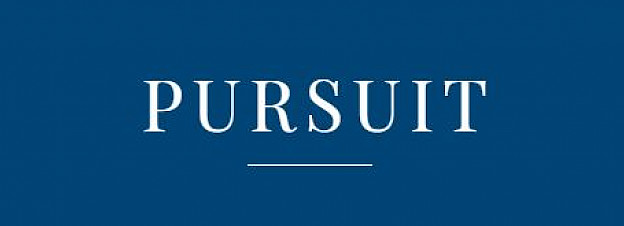
Events
Centre for the Study of Higher Education at the University of Melbourne
Featured events
Sustainable set building: ‘All Her Fault’ works towards a circular economy
Sustainable Set Building: All Her Fault Works Towards a Circular Economy
A Panel Discussion for International Design Production Week 2025
Art departments use a huge amount of materials when building sets, much of which ends up in landfill when the shoot concludes. All Her Fault, recently shot at Docklands Studios in Melbourne, sought to meet high sustainability benchmarks, with their art department adopting a responsible approach to sourcing and disposing of all materials. The team consulted with sustainability experts, trialled innovative building methods and materials, and used environmentally responsible vendors for both procurement and disposal. In this panel discussion you will hear from key members of the art department, construction crew, material consultants, and sustainability advisors as they reflect on the challenges, successes, and lessons learned on this project.
This event is featuring Max Dennett (Art Director), Seth Aitken (Art Director), Frank Burridge (Main and Frank Studio), Alex Cheesman (Picture Zero Consultancy) and Illusions Australia.
Registration
Tickets for this panel discussion are free but registration is required via Humanitix.
Registered attendees who find they are no longer able to attend are encouraged to cancel their ticket via Humanitix or contact fineartsmusic-tickets@unimelb.edu.au so that we can release those tickets for other patrons to book.
Venue
This panel discussion will take place in the Dr. Tony Gould Room in the Southbank Music Building on St Kilda Road. Please meet Front of House by the St Kilda Road entrance to be directed to the venue.
PARKING
The City of Melbourne has recently changed the parking restrictions around the Southbank Campus. Parking control hours are now expanded to 7am–10pm, seven days per week, and are capped at three hours. A $2-per-hour fee after 7pm is also now in place. There is no change to the $4-per-hour peak rate between 7am–7pm. Parking inspectors are regularly in the area fining drivers who overstay their meter, so we encourage everyone to be aware and avoid an expensive fine.
ACCESSIBILITY
All venues at the Southbank campus are wheelchair accessible. To read more about access services available at our venues, please visit: https://finearts-music.unimelb.edu.au/access-our-events.
IMPORTANT INFORMATION
- Please stay home if you feel unwell, even with mild symptoms. Face masks are welcome in all settings for community and personal safety.
- In order to account for drop-off in attendance, we overbook a select number of free events at the Faculty. If you have not arrived by the start of the performance, your ticket may be released to any waiting patrons at the door. Please arrive at the venue at least 15 minutes before the performance to secure your seat.
- Admission to any of our concerts and events is strictly at the discretion of Front of House. We have zero tolerance for any disrespectful behaviour.
The Disability Discrimination Act: Rights, Realities and the Road Ahead
About the event
The Disability Discrimination Act (DDA) was passed into legislation more than 30 years ago, and it’s been 15 years since any major amendments have been made. A lot has changed in the past 15 years – but the DDA has not. The current review of the DDA is a unique opportunity to tell the Australian Government exactly what needs to change so the DDA addresses discrimination and helps drive greater inclusion.
To say there is a lot riding on the outcome of the DDA review is an understatement. Will a refreshed DDA be enough to drive meaningful change? What else needs to be done to advance a rights-based agenda? Where does disability justice fit in?
At this event, a panel of experts will discuss the DDA and what more needs to be done to ensure people with disability enjoy the same rights and opportunities as others in the Australian community.
Speaker details
Video message:
Rosemary Kayess, Disability Discrimination Commissioner
Panellists:
Professor Alastair McEwin AM, Senior Fellow, Grattan Institute
Natalie Wade, Associate Commissioner, NDIS Quality and Safeguards Commission
Chair:
Associate Professor Anna Arstein-Kerslake, Director, Disability Inclusive Law and Policy Hub Director, Student Experience, Melbourne Law School
Event timing:
3:00 - 4:00pm: Seminar
4:00 - 4:15pm: Audience Q&A
4:15 - 5:15pm: Reception with refreshments at the Kenneth Myer Building
Venue and accessibility information:
The Ian Potter Auditorium is on the ground level of the Kenneth Myer Building. This venue has a hearing loop and we have arranged for Auslan interpreters and live captioning.



